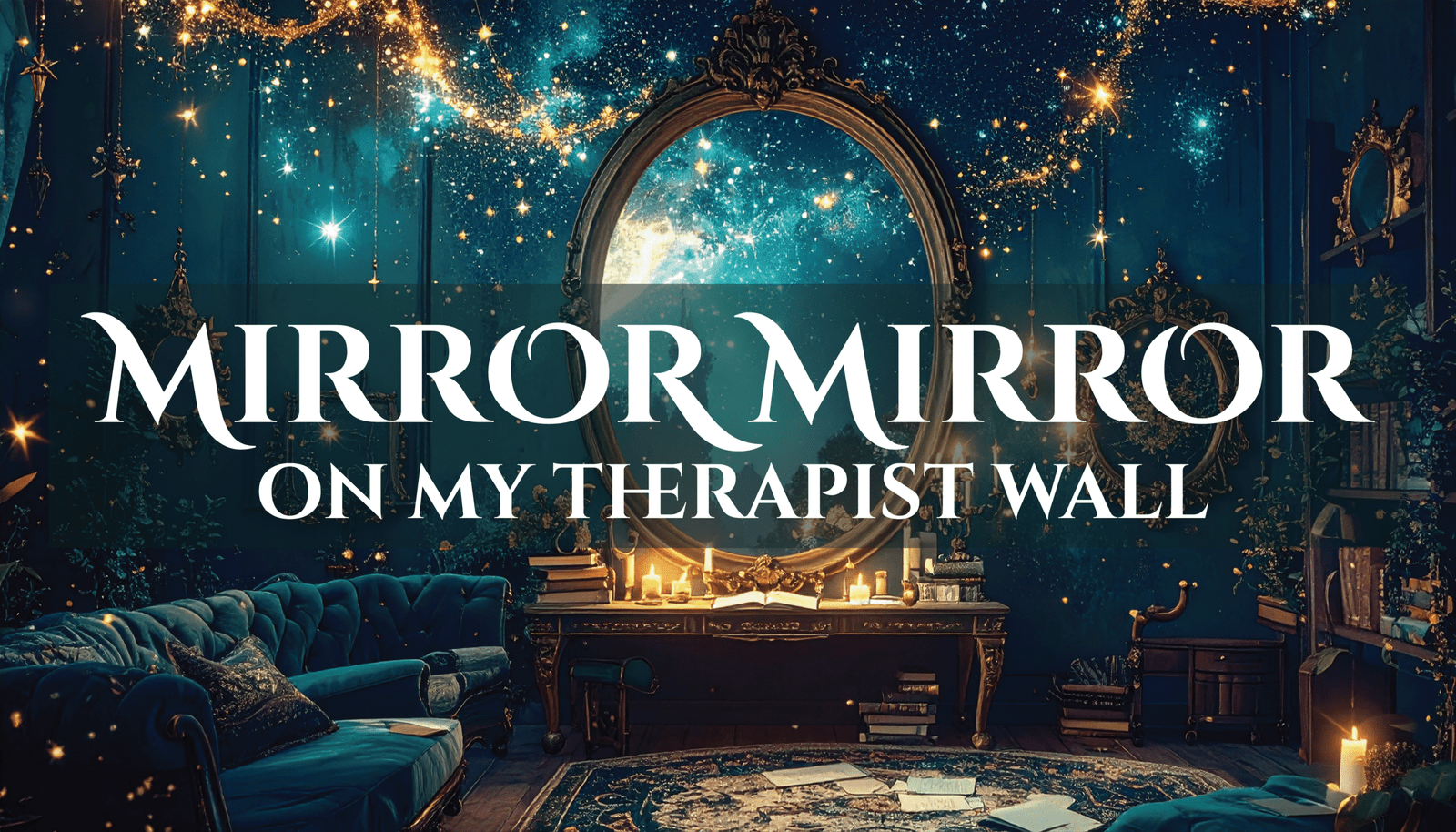
Mirror Mirror On My Therapist Wall: Abigail and Amelia
Share the Post: Mental Health Lessons from Abigail and Amelia: The Unsung Sisters of Self-Worth in The Aristocats When people

Ah, Hades. The fast-talking, shade-throwing, flame-haired god from Hercules. On the surface, he’s a comedic villain with a penchant for fire and flair. But underneath that glow-up (literally), Hades is a deeply wounded, chronically overlooked sibling with serious boundary issues and one heck of a grudge.
While he’s busy plotting world domination and making infernal deals with mortals, what’s really driving Hades is something we all experience in some form: rejection, comparison, and the painful longing to matter.
Let’s take a stroll (or lava-logged river cruise) into the mental health journey of Hades, and explore how his story mirrors our own inner struggles—especially when we feel stuck in roles we didn’t choose.
Hades wasn’t always the underworld overlord. He was a god—one of the Big Three, no less. But he got assigned a job nobody wanted. While his brothers, Zeus and Poseidon, got the sky and the sea, Hades got death. It’s giving “middle child with executive dysfunction.”
“I mean, what’s a guy gotta do to get some respect around here?”
This line says it all. Hades is desperate to be recognized, valued, and seen as powerful and important—but instead, he’s feared, avoided, and resented for the role he was given.
Sound familiar?
Hades didn’t ask to rule the Underworld. He was assigned that role, and likely didn’t have the support or validation needed to integrate it healthily. When we’re handed a role we didn’t choose—whether it’s caregiver, scapegoat, “the strong one,” or “the weird one”—we often internalize it as a reflection of our worth.
Mental health tip: You are more than the role you were assigned.
Healing begins when we name the resentment, not just suppress it. Otherwise? It festers and turns into manipulation, sarcasm, and backdoor deals with river demons.
Zeus is the golden child—literally. He’s celebrated, cheered, and adored. Hades is… not invited to brunch.
“Zeusy, I gotta admit, you’ve got style. But you’re a bit of a spotlight hog.”
This isn’t just sibling rivalry. It’s a deep internalization of being “not enough”. Comparison becomes the lens Hades sees himself through—and it fuels his bitterness.
Mental health insight: Comparison is often rooted in unacknowledged grief—grieving the life or identity we wanted but never got.
Let’s be real—Hades has rage issues. His hair literally explodes with emotion. He flips from calm to chaos in seconds, which is often a sign of suppressed emotional expression.
When people are not allowed to express sadness, fear, or shame—they often express anger instead.
Underneath Hades’ fire is fear: fear of irrelevance, fear of being unloved, fear of never measuring up.
Imagine Hades in therapy. He’d be late. He’d monologue. He’d deflect with sarcasm and charm. But oh, the healing potential:
Exploring sibling dynamics and the root of his resentment.
Somatic work for emotional regulation (and maybe flame management?).
Shadow work to reclaim the parts of him exiled to the Underworld—like his desire to be creative, connected, and included.
Narrative therapy to rewrite the story: “I am more than the God of Death. I am transformation, transition, and keeper of the in-between.”
In Jungian terms, Hades isn’t evil—he’s an archetype. A necessary one. The Underworld represents the unconscious, the forgotten, the feared. Hades rules it not because he is less—but because he has the capacity to hold the truth most people run from.
Your own “inner Hades” might be the part of you that holds old grief, rage, or loneliness. Don’t banish it. Befriend it.
What role did I get cast in that I never asked for?
Where do I feel dismissed or overlooked in my life?
When do I hide pain behind sarcasm, perfectionism, or anger?
What does my “Underworld” hold that might actually be wise or necessary?
Hades isn’t just the villain—he’s the invitation. To name your grief. To reclaim your worth. To recognize that sometimes, the most powerful healing comes not in the sunshine, but in the shadows.
You don’t have to be all light to be good.
You don’t have to smile to be loved.
You don’t have to win the sky to be worthy.
You just have to show up. Flames and all.
🖤 Therapy isn’t just for the golden gods—it’s for the ones in the Underworld too. The ones who’ve been misjudged, misunderstood, or left behind. The ones ready to rise—not as someone new, but as their whole self.

Share the Post: Mental Health Lessons from Abigail and Amelia: The Unsung Sisters of Self-Worth in The Aristocats When people

Share the Post: Captain Hook: The Mental Health Icon We Never Expected Let’s be honest: Captain Hook has always been